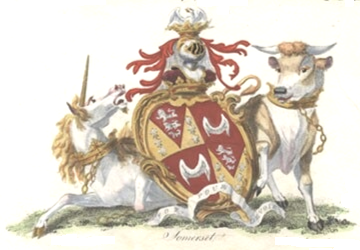|
Edmund Ludlow
Edmund Ludlow (c. 1617–1692) was an English parliamentarian, best known for his involvement in the execution of Charles I, and for his ''Memoirs'', which were published posthumously in a rewritten form and which have become a major source for historians of the Wars of the Three Kingdoms. Ludlow was elected a Member of the Long Parliament and served in the Parliamentary armies during the English Civil Wars. After the establishment of the Commonwealth in 1649 he was made second-in-command of Parliament's forces in Ireland, before breaking with Oliver Cromwell over the establishment of the Protectorate. After the Restoration Ludlow went into exile in Switzerland, where he spent much of the rest of his life. Ludlow himself spelled his name Ludlowe. Early life Ludlow was born in Maiden Bradley, Wiltshire, the son of Sir Henry Ludlow of Maiden Bradley and his wife, Elizabeth, daughter of Richard Phelips of Montacute, Somerset. He matriculated at Trinity College, Oxford in Sept ... [...More Info...] [...Related Items...] OR: [Wikipedia] [Google] [Baidu] |
Maiden Bradley
Maiden Bradley is a village in south-west Wiltshire, England, about south-west of Warminster and bordering the county of Somerset. The B3092 road between Frome and Mere forms the village street. Bradley House, the seat of the Duke of Somerset, is adjacent to the village. Maiden Bradley is the principal settlement in the civil parish of Maiden Bradley with Yarnfield. The parish is in the Cranborne Chase and West Wiltshire Downs Area of Outstanding Natural Beauty and was one of the clearings in the former Selwood Forest. In the north-west the parish includes the hamlet of Gare Hill, but most dwellings there are in Trudoxhill parish, Somerset. Geography Great Bradley Wood and Little Bradley Wood form a large woodland which spans the Somerset border here and occupies a large western tranche of Maiden Bradley parish. It occupies, at between 180m and 104m AOD, the slopes down from the rolling plateau on which the village and its fields lie, which is between 180 and 240 metres AOD. ... [...More Info...] [...Related Items...] OR: [Wikipedia] [Google] [Baidu] |
Oliver Cromwell
Oliver Cromwell (25 April 15993 September 1658) was an English politician and military officer who is widely regarded as one of the most important statesmen in English history. He came to prominence during the 1639 to 1651 Wars of the Three Kingdoms, first as a senior commander in the Parliamentarian army and then as a politician. A leading advocate of the execution of Charles I in January 1649, which led to the establishment of the Republican Commonwealth of England, Scotland and Ireland, he ruled as Lord Protector from December 1653 until his death in September 1658. Cromwell nevertheless remains a deeply controversial figure in both Britain and Ireland, due to his use of the military to first acquire, then retain political power, and the brutality of his 1649 Irish campaign. Educated at Sidney Sussex College, Cambridge, Cromwell was elected MP for Huntingdon in 1628, but the first 40 years of his life were undistinguished and at one point he contemplated emigration to ... [...More Info...] [...Related Items...] OR: [Wikipedia] [Google] [Baidu] |

